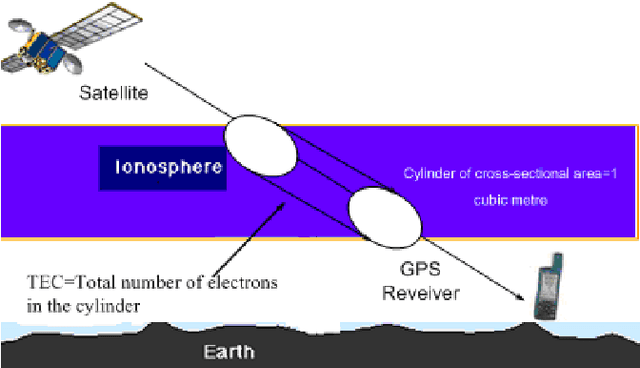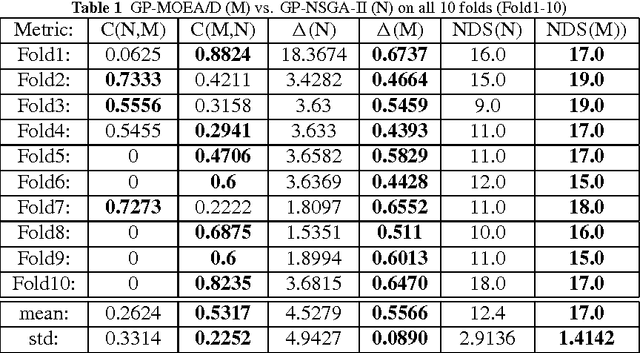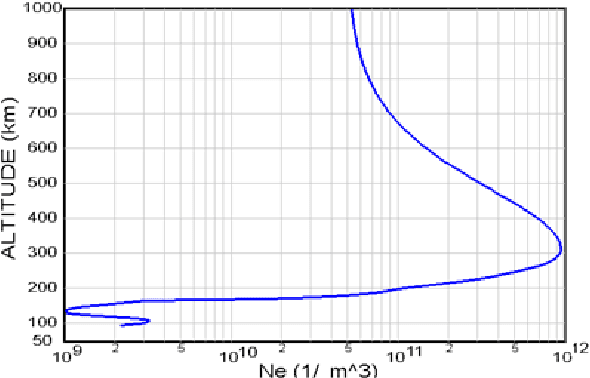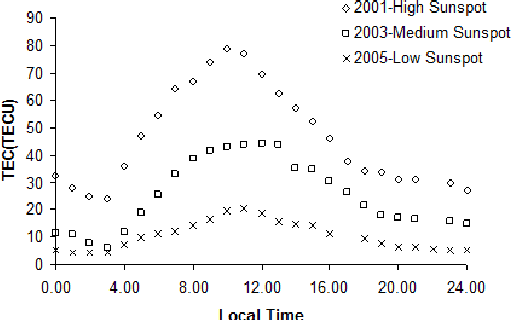A GP-MOEA/D Approach for Modelling Total Electron Content over Cyprus
Paper and Code
Nov 24, 2011



Vertical Total Electron Content (vTEC) is an ionospheric characteristic used to derive the signal delay imposed by the ionosphere on near-vertical trans-ionospheric links. The major aim of this paper is to design a prediction model based on the main factors that influence the variability of this parameter on a diurnal, seasonal and long-term time-scale. The model should be accurate and general (comprehensive) enough for efficiently approximating the high variations of vTEC. However, good approximation and generalization are conflicting objectives. For this reason a Genetic Programming (GP) with Multi-objective Evolutionary Algorithm based on Decomposition characteristics (GP-MOEA/D) is designed and proposed for modeling vTEC over Cyprus. Experimental results show that the Multi-Objective GP-model, considering real vTEC measurements obtained over a period of 11 years, has produced a good approximation of the modeled parameter and can be implemented as a local model to account for the ionospheric imposed error in positioning. Particulary, the GP-MOEA/D approach performs better than a Single Objective Optimization GP, a GP with Non-dominated Sorting Genetic Algorithm-II (NSGA-II) characteristics and the previously proposed Neural Network-based approach in most cases.
 Add to Chrome
Add to Chrome Add to Firefox
Add to Firefox Add to Edge
Add to Edge